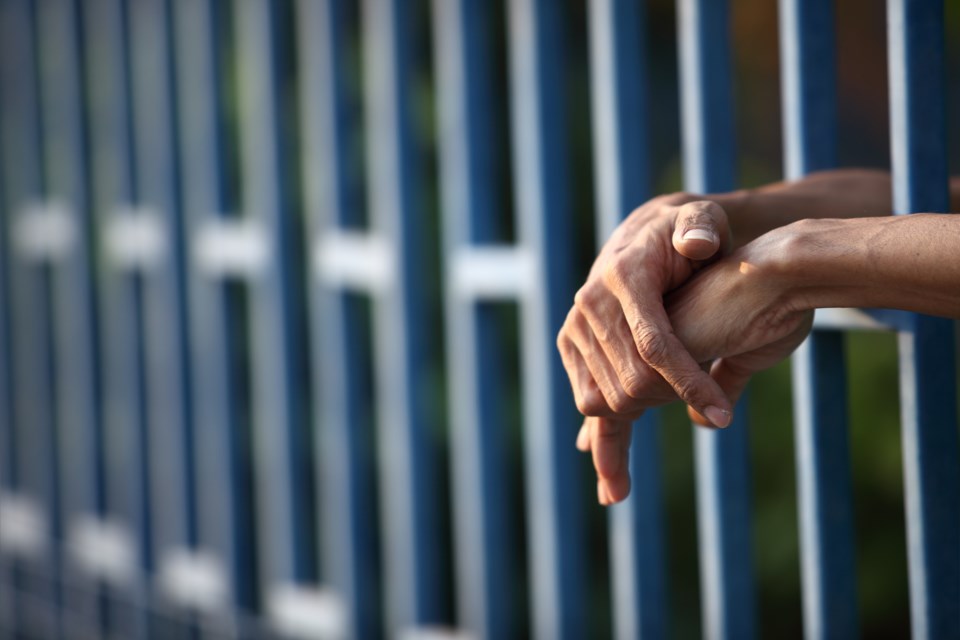Central North Correctional Centre (CNCC) should be in on new staffing for people just released from custody at the Penetanguishene facility, says a motion city councillors will consider Monday night.
It asks that a letter be sent to Ontario’s Solicitor General requesting that community reintegration officers be provided for the correctional facility to improve the transition of individuals from custody to neighbouring communities, facilitate links to support services, and reduce pressure on the Barrie area’s shelter and outreach programs.
“I am not criticizing the province. I think it is a great program and much needed,” said Deputy Mayor Barry Ward, whose motion is an item for discussion. “It’s just hard to believe this area wasn’t included.”
The province announced Jan. 18 that it had hired 25 new community reintegration officers to directly support the successful transition of people in custody returning to their community — part of Ontario’s investment of $23 million during two years to hire 50 additional probation and parole officers across the province.
“Strengthening the supports available to help individuals safely re-enter the community is vital to reducing recidivism and enhancing public safety,” said Solicitor General Sylvia Jones.
The province says new community reintegration officers began their role in December at jails and correctional centres in Thunder Bay, Kenora, Milton, Brockville, Sarnia, Toronto, Elgin-Middlesex, and Quinte.
But not at Central North Correctional Centre in Penetanguishene, also known locally as the 'superjail'.
“The Central North Correctional Centre has dedicated staff already in place to continue to assist inmates in planning for their release, including helping individuals to connect with outside agencies to continue to access any needed supports upon release,” said Andrew Morrison, spokesman for the Ministry of the Solicitor General.
“This staff also works with inmates with court-ordered terms for probation or parole to ensure they understand their responsibilities and where to report upon release from custody," he added.
The Simcoe County Alliance to End Homelessness enumeration of November 2020 showed 563 people were without shelter and the report indicated the actual number was almost certainly higher. It said that 49 per cent, or 276 people, were in Barrie.
Ward said the report also indicated 38 per cent of all people living on the street in Simcoe County were doing so because of ‘health or correctional’ issues.
“People who are released from jail or the health-care system should be the low-hanging fruit when it comes to delivering services to the homeless,” he said. “When they are released from jails or hospitals, they should be asked if they have a place to go or require other services. If they don’t have somewhere to live, the services should be in place to help them.
“It is ridiculous that we wait until an outreach worker finds them living in a tent or some other shelter and then try to help," the deputy-mayor added.
Ward said it’s his belief that being homeless only increases the chance those released from jail will commit a crime and end up back at CNCC, at great cost both to themselves in terms of rehabilitation and to taxpayers.
“This issue put the lie to the adage ‘the squeaky wheel gets the grease’,” he said. “The city and the Downtown BIA have been asking for this type of service for years so people getting off the bus from the jail, who need help, are given some kind of assistance, rather than just left on their own.
“In fact, I was at a meeting with Ontario Solicitor General Sylvia Jones a couple of years ago when Coun. Keenan Alywin, who represents the downtown, raised this exact issue,” Ward said. “Barrie city staff recognize this problem because they’ve been dealing with it for years.”
City transit staff say that, pre-pandemic, an average of three bus tickets per day were sought by individuals who had been released in Barrie from the Penetanguishene superjail, and were seeking to leave the community.
The city does not receive information on the total number of people released from CNCC into Barrie.
The preamble to Ward’s motion is that the province had announced its intent to strengthen public safety by hiring 25 new community reintegration officers for the successful transition of individuals in custody returning to their community, and that these officers are specifically trained probation and parole positions established to provide enhanced supports and services for offenders — including information sharing and links to community supports.
But none of the 25 new community reintegration officers are identified as being assigned to Central North Correctional Centre, a maximum-security prison in Penetanguishene — with Barrie as the largest urban centre in proximity for those who are being released from custody.
The motion also asks that local social and community-based service providers have identified that individuals are being released without proper planning or supports, which is placing additional pressure on the shelter and outreach programs in Barrie.
If this motion is approved Monday night, it will be considered for final approval at the Jan. 31 city council meeting.



